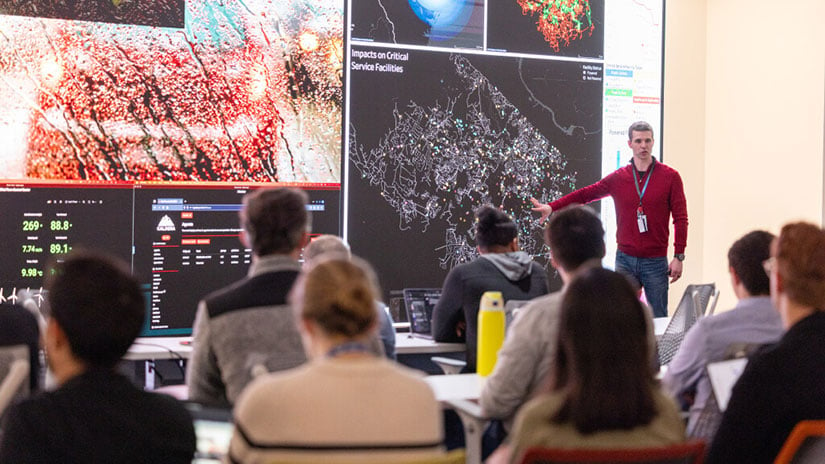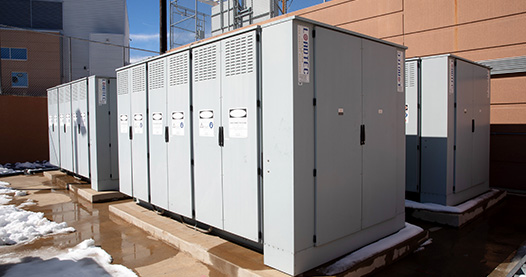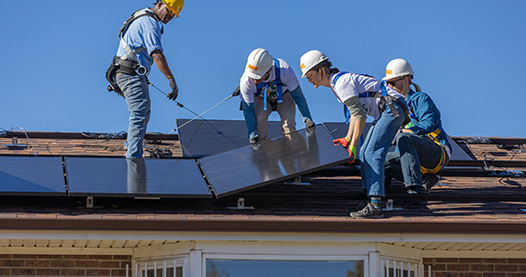Energy to Communities Program: Peer-Learning Cohorts
Energy to Communities (E2C) offers peer-learning cohorts to advance local energy goals. Peer-learning cohorts are funded by the U.S. Department of Energy and managed by NLR.

What Are E2C Peer-Learning Cohorts?
Peer-learning cohorts are multicommunity engagements that convene community entities around a common energy topic. Participants meet regularly for approximately 6 months to exchange strategies and best practices, learn in a collaborative environment, and workshop policy or program proposals, action plans, or strategies to overcome challenges.
In each cohort, experts provide up to 15 participants with case studies, analysis and modeling tools, templates, training materials, and facilitated collaboration to accelerate energy progress.
More than 200 community entities have participated in one of 17 cohorts.
Upcoming Peer-Learning Cohort Topics
E2C is not currently accepting applications for peer-learning cohorts. The application for the July 2026 round is expected to open in the spring of 2026. For updates about open opportunities, complete and submit the sign-up form.
E2C Peer-Learning Cohorts Participants
For a list of current and past cohorts, visit the Current and Past Peer Learning Cohorts page.
Eligibility
Peer-learning cohorts are intended for participants that have decision-making power or influence in their community entities but need access to additional energy expertise to inform upcoming opportunities. Eligible primary applicants for cohort topics may include:
- Tribes, including Alaska Native Villages, Alaska Native Corporations, and state recognized Tribes
- City, town, or county (local) governments
- Metropolitan planning organizations
- Regional planning organizations
- Municipal and cooperative utilities
- Community-based organizations
- Other public entities, such as transit agencies, school districts, and housing authorities.
Contact
If you have questions about E2C Peer-Learning Cohorts, please email E2C.
Sign up for E2C email updates to be notified when program applications open.
Share
Last Updated Dec. 2, 2025


